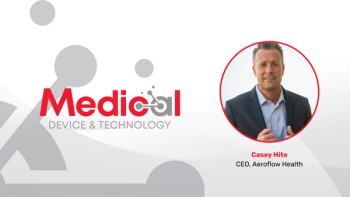
Why do hospitals compete with us?
Do you work hard maintaining your hospital privileges? One Medical Economics board member argues that it isn't worth it.
The rules for maintaining these privileges have changed over the years. It used to be sufficient for me to send to the hospital medical staff offices signed affidavits from the chairpersons of the departments through which I held active privileges. This arrangement no longer is adequate for the hospital-credentialing organizations, however. Now, I must have several active cases in the department in which I want to continue privileges. And despite my residency training and certifications for cardiac, pediatric, and neonatal life support, my intensive care unit, pediatric, and neonatal privileges have been removed over the past 10 years.
CONFLICTS ABOUND
■ Hospitalists.
The hospitals have changed my privilege level from "consultant" or "active admitting" to "community referring physician." This change maintains the concept of privileges, but in actuality, I have no privileges to see my own patients or write orders. This move occurred because hospitals now employ their own doctors to care for patients.
■ Referrals.
All three hospitals at which I have privileges operate area family medicine practices that compete with mine directly, and, again, those practices refer inpatient business to their own services as well.
■ Urgent care.
One of the hospitals opened up an "urgent care center" that also competes with my practice. Center representatives visited my office to ask me to refer patients for care. They said that they could help my patients outside of my office hours and refer my patients back to me, but this has not been the case. On most days, the center is not open hours that extend past mine, and the center asks patients to return for pricey rechecks there.
Rather than send patients via emergency medical service to the closer hospital, the center, of course, refers them to its own hospital.
■ Charges for services.
All three hospitals have excessive charges for all services they provide. For example, sleep studies at one are $7,500 per study. A simple lipid panel at another is $449. The hospital-owned urgent care center frequently charges the highest-level new-patient code, 99205, for uncomplicated upper respiratory infection visits.
Most hospitals say they lose money on uncompensated care, but given such inflated prices and the fact that hospitals are tax-exempt and receive state and federal funds, lost revenue only exists on paper.
■ Peer reviews.
When a hospital views a physician as competition or a critic, it often conducts a sham peer review to discredit the doctor and remove him or her from the staff. Battling such reviews can be expensive and time-consuming.
PRIVILEGES NOT WORTH IT
Given the conflicts of interest I've outlined and direct competition between hospitals and their staff physician members, no compelling reason seems to exist to maintain privileges.
As we move toward high-deductible insurance plans with health savings accounts, patients will have to include cost in their care decisions. Small, independent practices can compete effectively with local hospital practices, emergency departments, and urgent care centers on this level, and such practices tend to be more friendly and comfortable for patients.
Free-market healthcare, where all entities compete on a level playing field for patient care business, would help ensure price efficiency and encourage care innovation. It is the only sustainable, long-term solution to our current insurance-driven, government over-regulated system.
The author practices family medicine in Mullica Hill, New Jersey. From the Board columns reflect the opinions of the authors and are independent of Medical Economics Send your feedback to
.
Newsletter
Stay informed and empowered with Medical Economics enewsletter, delivering expert insights, financial strategies, practice management tips and technology trends — tailored for today’s physicians.






